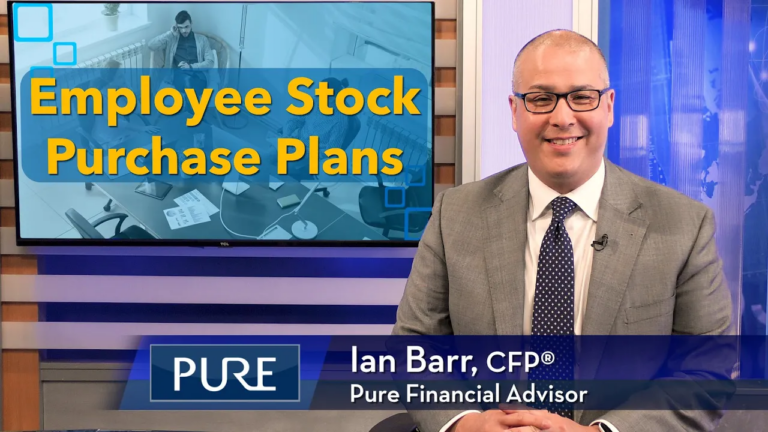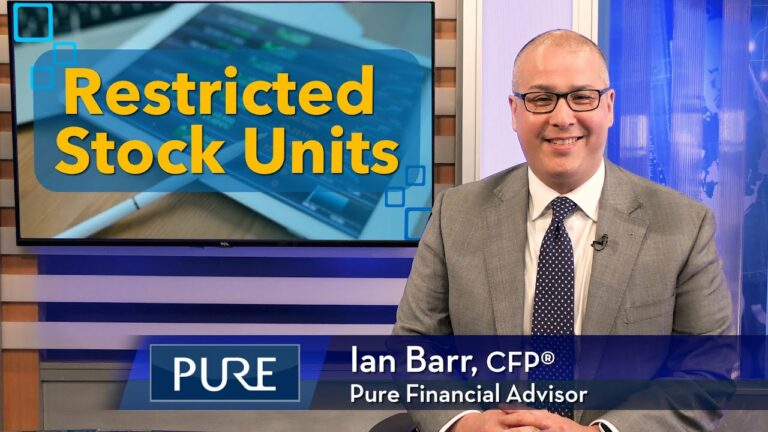Should you claim Social Security early, at age 62? Or perhaps you should take Social Security at your full retirement age? Or should you wait to collect Social Security benefits at age 70? Understanding your Social Security break-even age can be a useful factor when determining when to start collecting your Social Security benefits. David Cook, CFP®, AIF®, Pure Financial Planner, explains the concept and how it is calculated.
FREE GUIDE | Social Security Handbook
Transcript
What is the Social Security Break-Even Age?
When to take Social Security is one of the most common questions I get as a Financial Planner and is a very important aspect to any retirement plan.
So, when to take Social Security? When is your break-even? The first step is to know exactly what your benefits are. So, log in to SSA.GOV and download your latest statement. This will tell you your current age 62 benefit, your full retirement age benefit, and your age 70 benefit.
Now at age 62, you get a permanent reduction in your benefits of around 30% but collect more Social Security checks. At your full retirement age, this could be between 66 and 67, depending on your birthdate, you get 100% of your retirement benefit. From your full retirement age to age 70, you get a bonus credit of approximately 8% per year. Now, if you live long enough, the dollar value of the Social Security benefits you receive by getting a larger amount, but starting later, catches up to the cumulative benefits of collecting earlier. Now that moment when it catches up, is called the break-even age.
Here’s an example – let’s say your Full Retirement Age is age 67, which means you were born after 1960, and your benefit is $1,500 a month. Your age 62 benefit would be approximately 30% less, at $1,050. With your age 70 benefit at $1,860 per month.
Now if you take your benefits at your full retirement age at age 67, it will take approximately 12 years, to break-even, or 79, with the reduced benefits that begin at 62. If you delay to age 70, it takes you 11 years, or age 81, to break-even with the benefits that would’ve started at 62, and 13 years, or age 83, to catch up to the benefits that would have begun at age 67.
This method doesn’t take into consideration things like spousal or survivor benefits, other sources of retirement income, or if you’re still working. But as long as you understand the limitations of the break-even analysis, there is a benefit with including this concept into your decision on when to take Social Security.
Subscribe to our YouTube channel.
IMPORTANT DISCLOSURES:
• Investment Advisory and Financial Planning Services are offered through Pure Financial Advisors, LLC, a Registered Investment Advisor.
• Pure Financial Advisors LLC does not offer tax or legal advice. Consult with your tax advisor or attorney regarding specific situations.
• Opinions expressed are subject to change without notice and are not intended as investment advice or to predict future performance.
• Investing involves risk including the potential loss of principal. No investment strategy can guarantee a profit or protect against loss in periods of declining values.
• All information is believed to be from reliable sources; however, we make no representation as to its completeness or accuracy.
• Intended for educational purposes only and are not intended as individualized advice or a guarantee that you will achieve a desired result. Before implementing any strategies discussed you should consult your tax and financial advisors.
CFP® – The CERTIFIED FINANCIAL PLANNER™ certification is by the Certified Financial Planner Board of Standards, Inc. To attain the right to use the CFP® designation, an individual must satisfactorily fulfill education, experience and ethics requirements as well as pass a comprehensive exam. Thirty hours of continuing education is required every two years to maintain the designation.
AIF® – Accredited Investment Fiduciary designation is administered by the Center for Fiduciary Studies fi360. To receive the AIF Designation, an individual must meet prerequisite criteria, complete a training program, and pass a comprehensive examination. Six hours of continuing education is required annually to maintain the designation.












